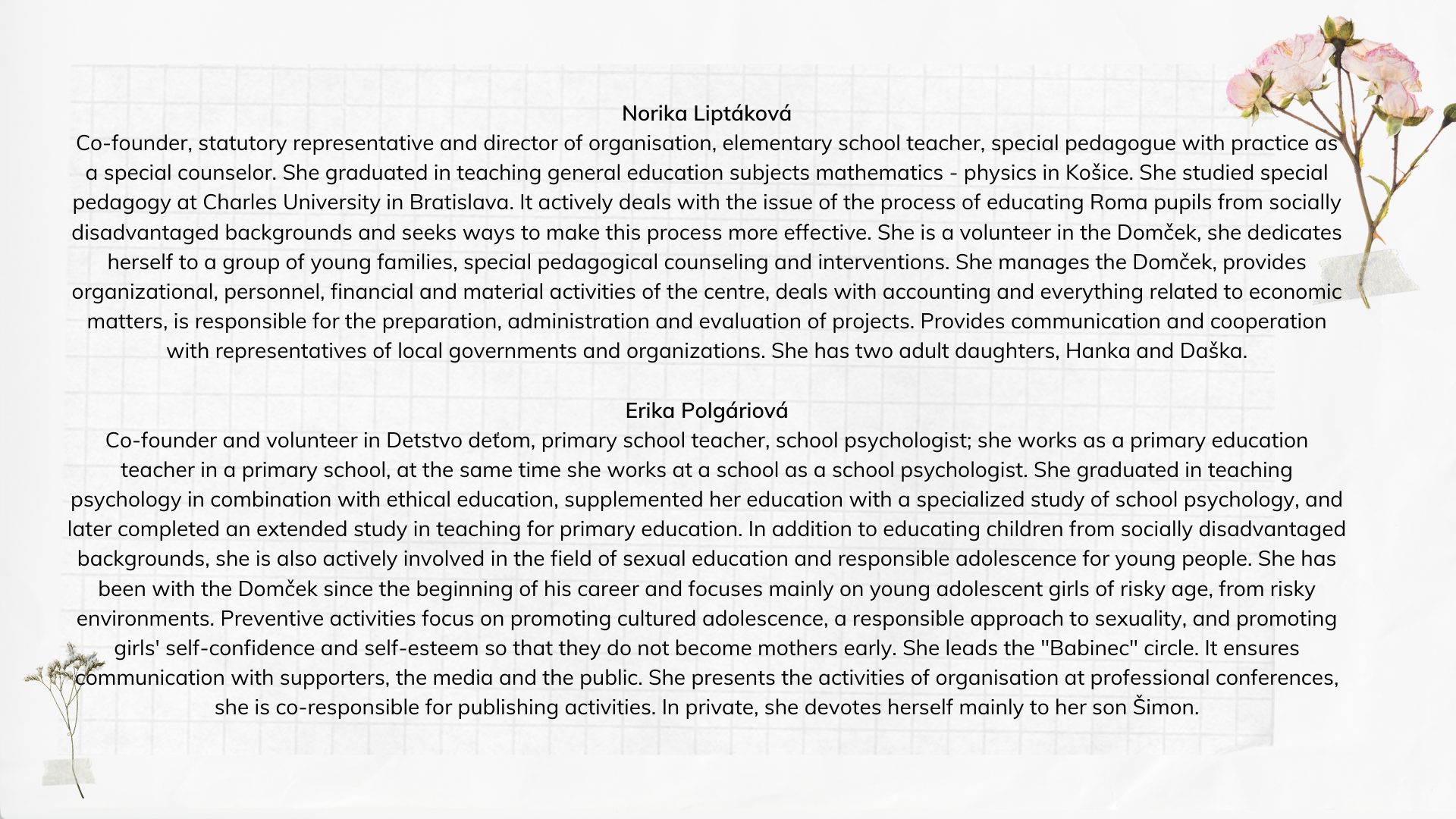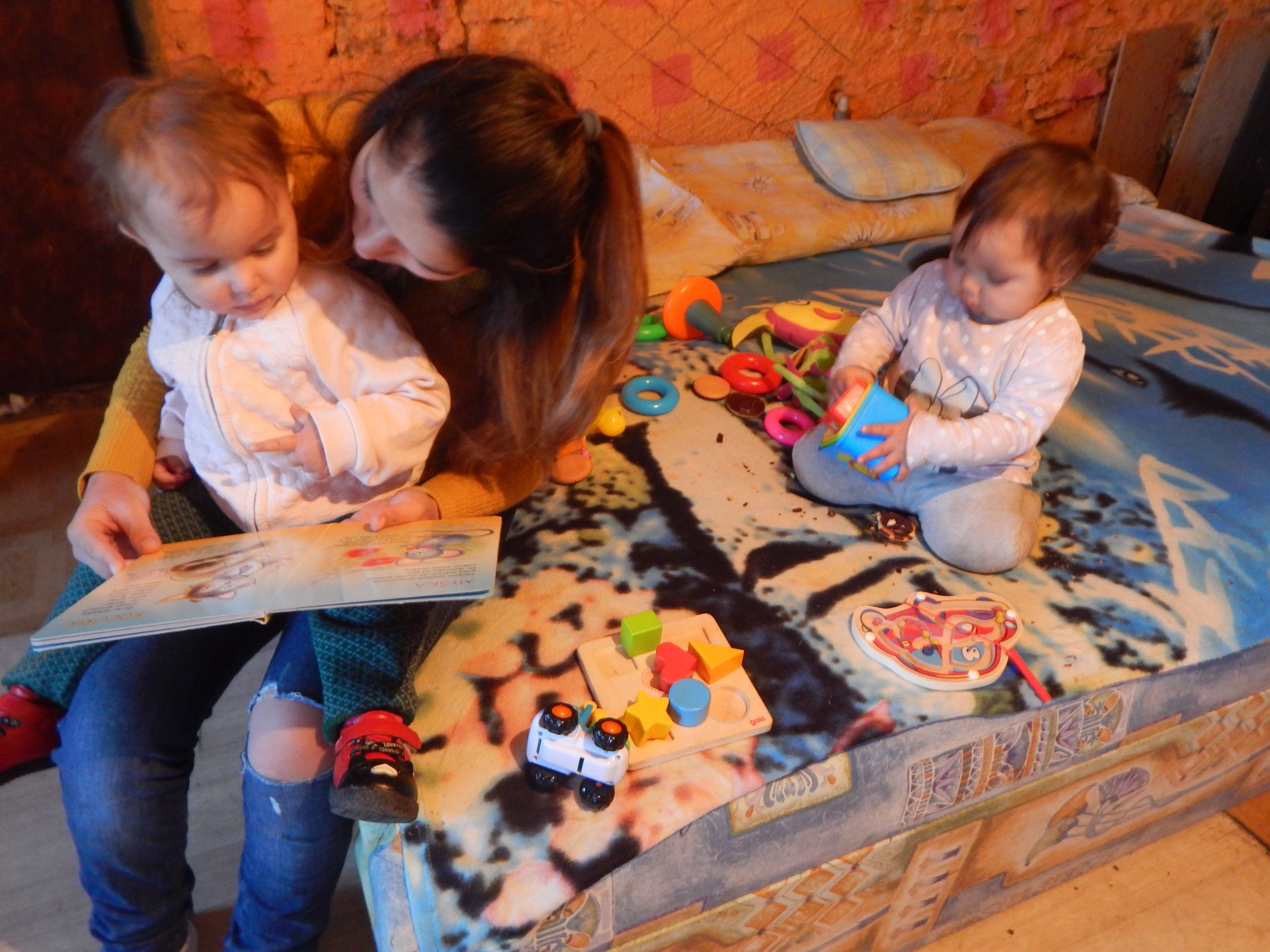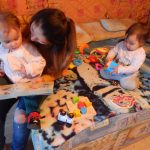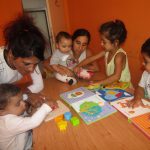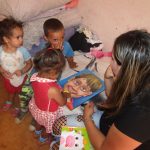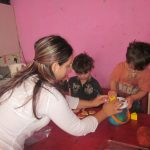Talking to children, answering their curious questions or commenting on everything their curious eyes see from the first minutes in the world. For most mothers, these are self-evident activities through which they consciously (and unknowingly) develop and educate their children. Well, not for everyone. Moms who did not have this pattern with their mother or grandmother do not play with their children in this way and need a pattern.
For mothers from Dobšiná, who visit the Domček Parent Center of our civil assiociation Detstvo deťom, we – their primary school teachers – were such a role model. We led young mothers to how they can educate their children in a playful way, how to provide children with a stimulating environment and develop their skills. The first 3 years of a child’s life are the most important for brain development. We showed our mothers how to make full use of these first years and thus prepare their children for school times and, in fact, for life.
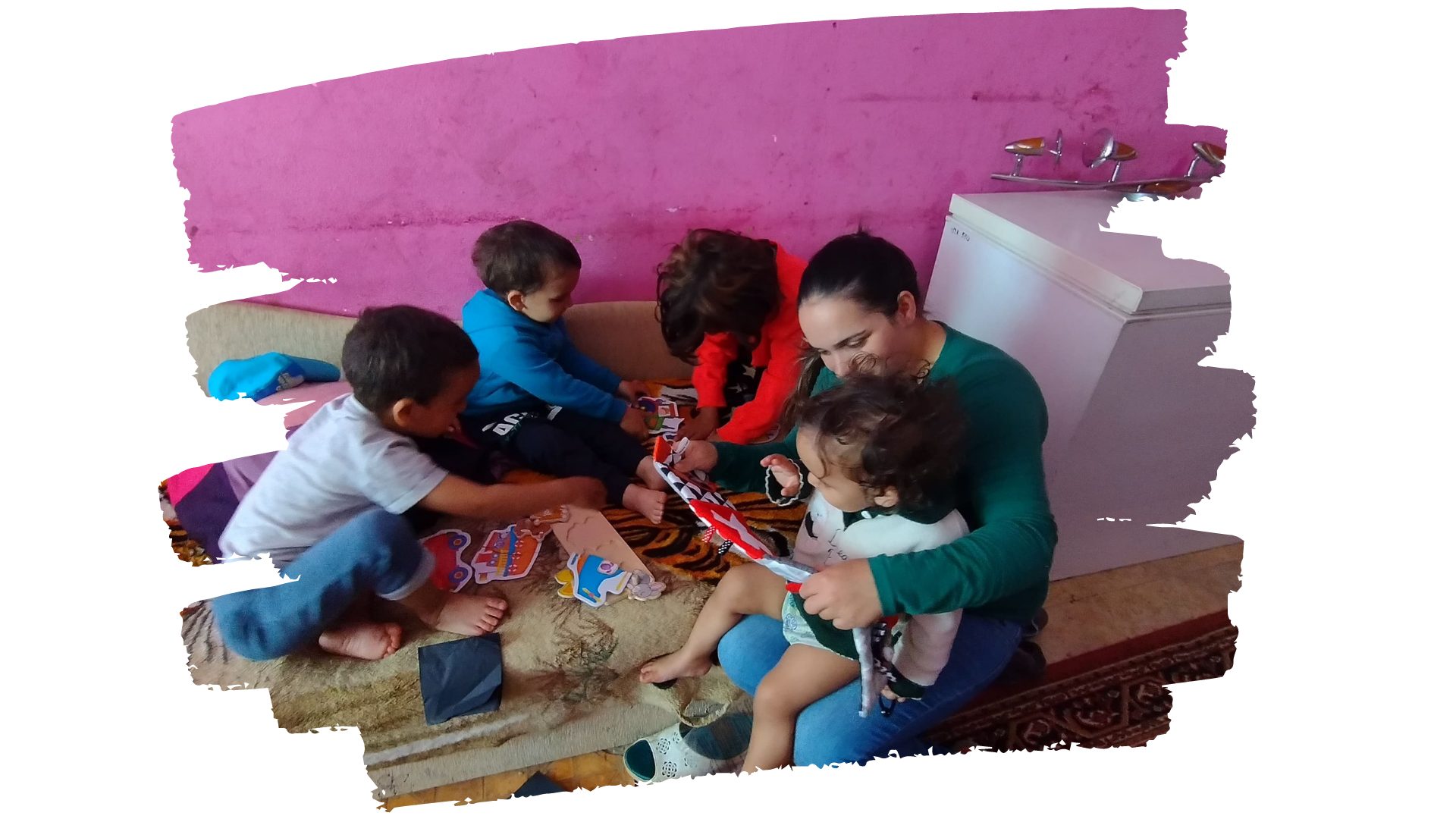
Under our guidance, the mothers from Domček learned to “mother” the way our mothers and yours did. As we take it for granted. They then used their skills with other children who were born to them and did so naturally. Without us, the teachers, having to lead them further. We were and are happy and extremely proud of our girls – our former students, from whom the mothers grew up to the unit. Well, one thing still bothered us…
… In Domček we had only 10 – 12 families, but there was a whole bunch of mothers who needed to show “how to do it”. Not everyone moved to Domček. So we thought, how to get Domček “to them”? We talked about it, we looked for a solution… and over time it was found – as if by itself. From the mothers from our “house” families, the leaders in the community gradually formed completely naturally, other mothers from the settlement and from the city began to imitate them, they came to them with a request for help or a request for advice.
And so, thanks to projects supported by the ACF Slovakia program, we have expanded our activities to include early childcare in the home environment, our house has become a center for early intervention support and “AMALKY” were born – peeractivists who make early intervention directly in families, in the community – in the village and in the city. Because the first 3 years of life are crucial, Amalky will ensure that every single day the baby and his mother are fully utilized.
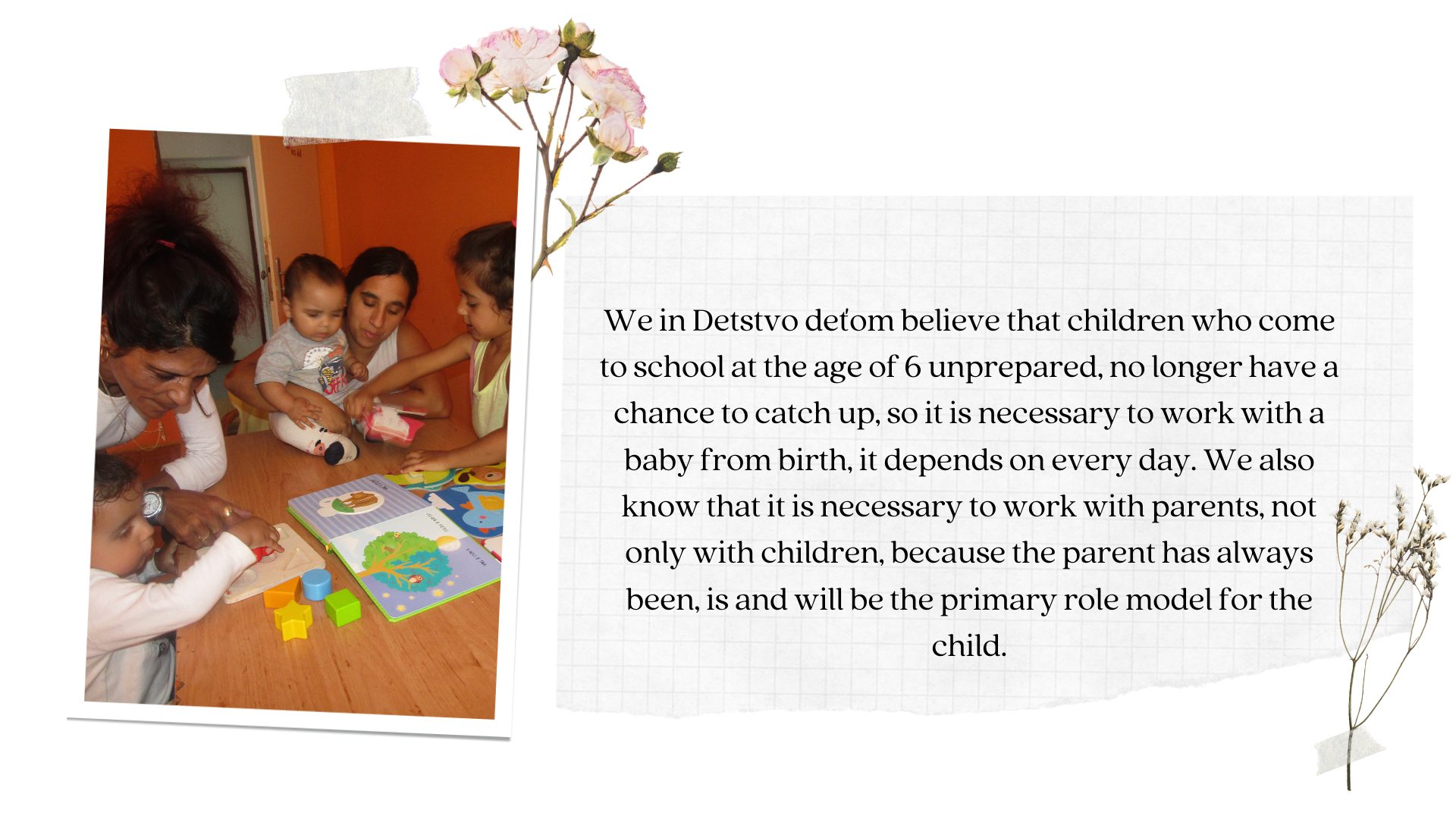
Thanks to the project, we managed to create jobs for the girls who visited Domček from the beginning – our Zuzka, Magda, Mariana and Julka. They became mentors for working with babies from birth, toddlers and preschoolers. Zuzka is dedicated to children and their mothers in Domček. “AMALKY” Magda, Mariana and Julka are “in the field”, they visit mothers and babies at their home every day, in their natural home environment. The interest is great!
The project allows us to engage in early intervention in the Roma community, directly in families at risk of generational poverty. With children of children, our Amalky are peers and friends. They can easily communicate with them and their mothers take their advice and personal experience more to heart than from a “school” teacher. In the natural home environment, in the presence of Amalka’s mothers, they take care of children from the youngest babies to preschool age.
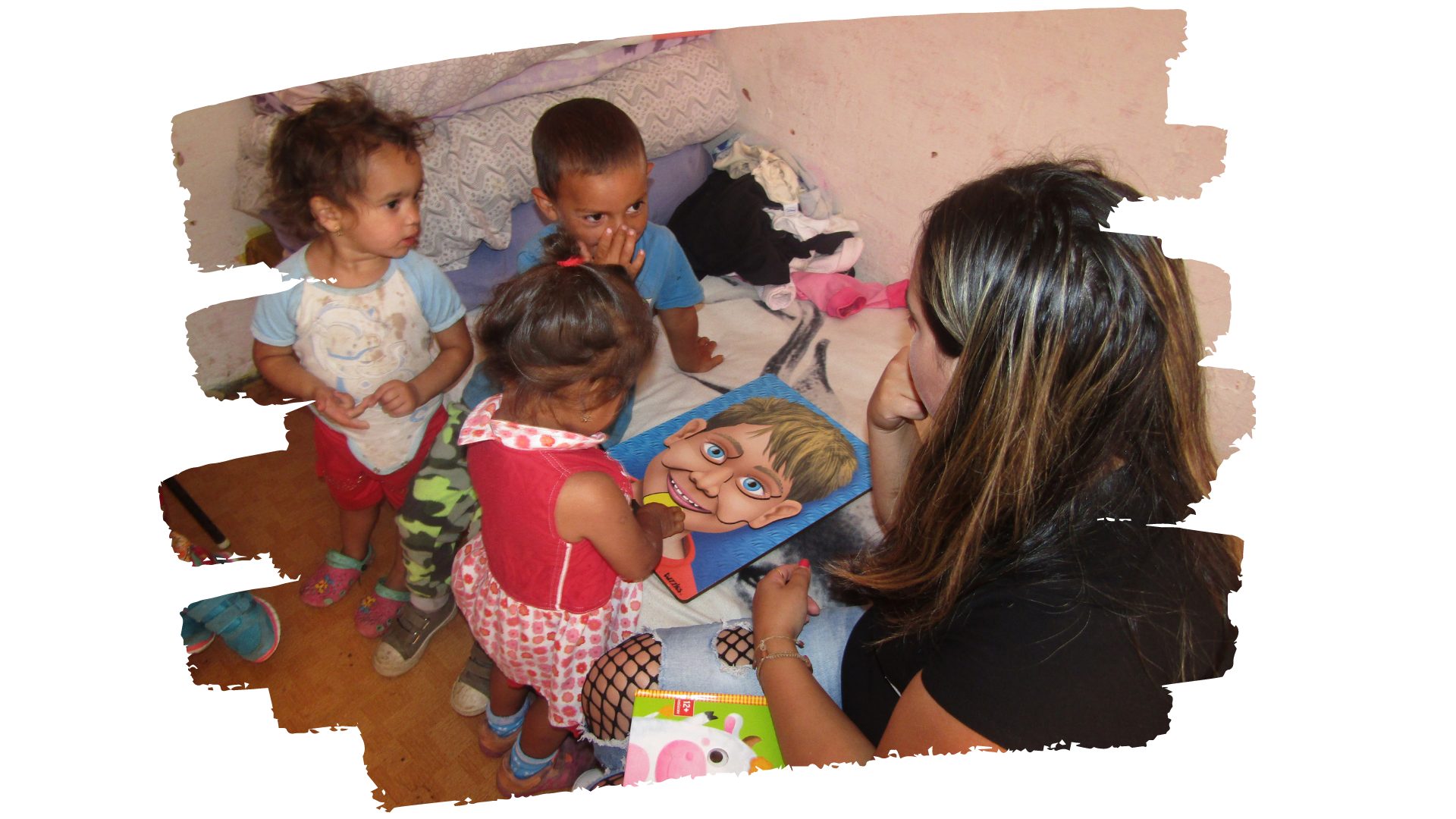
As part of the project, we prepare activities and toys according to the age of the children so that all partial functions develop in the children. Amalky brings various commonly available toys and aids for children’s development to families: inserts, puzzles, cubes, kits, puzzles, mosaics, stringers, disguises, Montessori aids and toys – some mothers made themselves, also cardboard and children’s books, but also pencils, crayons, papers, worksheets or coloring books.
Thank you for helping us implement the solution. We believe that our activities will be reflected in the success of future kindergartens and schoolchildren, that they will grow into successful young people and the best parents for their children. We see progress and progress in children and mothers. And even if the first of the projects has already ended and the second will end soon, we will try not to end our activities. Because not only on every day, but also on every question: “Mom, what is it?” Or “Mom, so hin oda?”, matters.
